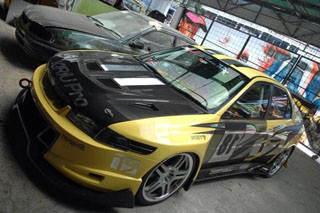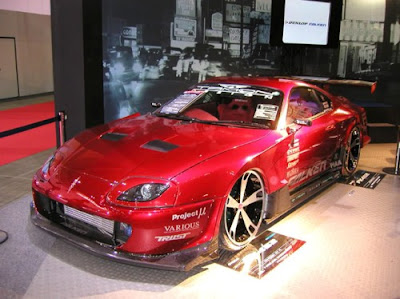 In a turn of events, the European Commission has launched a formal investigation under EC Treaty state aid rules into possible aid granted in the context of the privatization of the Romanian “Automobile Craiova” plant (former Daewoo
In a turn of events, the European Commission has launched a formal investigation under EC Treaty state aid rules into possible aid granted in the context of the privatization of the Romanian “Automobile Craiova” plant (former Daewoo EU Competition Commissioner Neelie Kroes said: "The Commission fully supports
Ford of Europe CEO John Fleming said in a statement, “We accept fully the EU Commission's right to open a formal investigation into the privatization process. We will cooperate fully with the Commission to help bring this investigation to a satisfactory conclusion as quickly as possible.”
European Commission Press Release
State aid: Commission opens in-depth investigation into possible aid in privatisation of Romanian car producer Automobile
The European Commission has opened a formal investigation under EC Treaty state aid rules into possible aid granted in the context of the privatisation of Automobile
EU Competition Commissioner Neelie Kroes said: "The Commission fully supports
Daewoo Automobile Romania was created in 1994. In 2000, the parent company Daewoo went bankrupt and most subsidiaries were sold. However, no investor could be found for Daewoo
A further attempt to sell the company was launched earlier this year. Following a public tender, Ford Motor Company was the only company to submit a binding offer and thus won the tender. The technical and financial negotiations started in July 2007 and the sale-purchase agreement was signed on 12 September 2007.
The Romanian privatisation agency AVAS attached specific conditions to the privatisation contract. In particular, the successful bidder had to ensure the achievement of a minimum production level of 200 000 cars in the fourth year after privatisation, to continue the current activity for four years and to maintain the 3900 former employees of Automobile Craiova and Daewoo Romania.
Furthermore, it was reported that the Romanian government passed a special law for the privatisation of Automobile Craiova. Allegedly, the law provides for a write-off of the debts of the car producer and a guarantee concerning the payment of debts towards the other former Daewoo subsidiaries. Such debt write-off was not offered to the other potential bidders in the tender procedure.
The Commission has concerns that the privatisation of Automobile Craiova through a conditional tender might have resulted in a lower sales price and could therefore involve state aid. The conditions would ensure the maintenance of a certain production level and the aid could therefore support Automobile Craiova. This advantage would be financed by the revenue that the State had foregone through the sale. Furthermore, if the new investor were to benefit from a debt write-off by the state, whereas the debt situation of Automobile Craiova allegedly deterred a number of potential investors from submitting a bid, the investor would have received state aid as well.


















